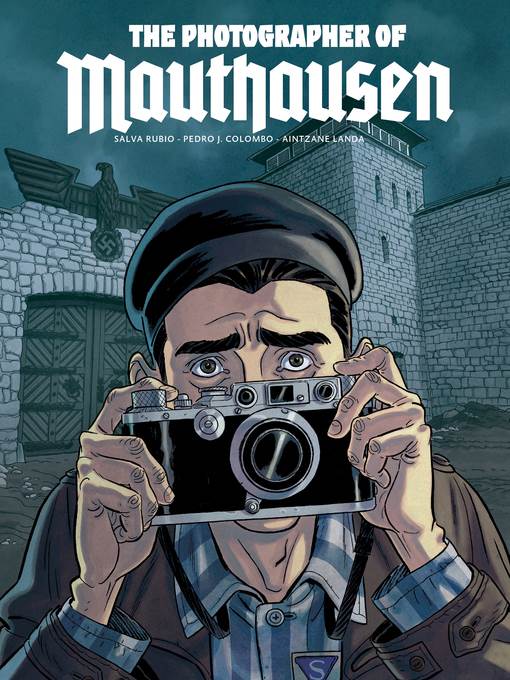
The Photographer of Mauthausen
کتاب های مرتبط
- اطلاعات
- نقد و بررسی
- دیدگاه کاربران
نقد و بررسی

September 7, 2020
Francisco Boix, a Spanish photographer during WWII, is interred in January of 1941 by the Nazis in Mauthausen, a concentration camp for political dissidents, in this horrific and provocative graphic novel based on a true story. At Mauthausen, prisoners are routinely worked to death or casually murdered by their captors. After Boix lands a cushy job developing photos, he discovers a cache of images taken of the victims. Boix and his compatriots devise a plan to smuggle out the negatives and provide evidence for the world to finally understand the Nazi atrocities. Colombo skillfully illustrates the tense environment as the photos are transferred from inmate to inmate, beset by a series of close calls and near-discoveries. Depictions of Mauthausen—looming and inescapable—elevate the sense of oppression and paranoia (though Colombo is less adept at differentiating visually between the prisoners). When the Americans liberate the camp, Boix’s quest continues until he eventually testifies at the Nuremberg Trials. His experience is frustrating, and he’s left wondering if the world ever cared about the individual victims, many of whom, like him, are left to fight their spiritual and emotional battles alone. With exacting artistic detail, this complex and often disturbing history comes alive, and is at times thrilling, and just as often disillusioning.

October 15, 2020
Francisco Boix was a Spanish photographer and communist who fled to France during the Spanish Civil War. As a WWII POW, he was taken to Mauthausen, an Austrian extermination camp for irredeemable prisoners. His work as prison photographer began with him taking pictures of prisoners as they entered the camp; he then moved on to photographing dead prisoners on the orders of SS officer Paul Ricken. To prove the injustices being performed, he arranged for the incriminating film to be smuggled out of the camp. Boix's heart-wrenching story is written as if he is relaying his experience to his missing sister, so his feelings are expressed in a candid manner, though his incredible bravery is obvious. There are plentiful details, both written and illustrated; the fear of the prisoners is identifiable on their faces, and Colombo uses muted colors for the art in the camp. Reproductions of Boix's photographs are drawn with a high level of detail. Recommend this to WWII buffs who think they've read it all.(Reprinted with permission of Booklist, copyright 2020, American Library Association.)

























دیدگاه کاربران